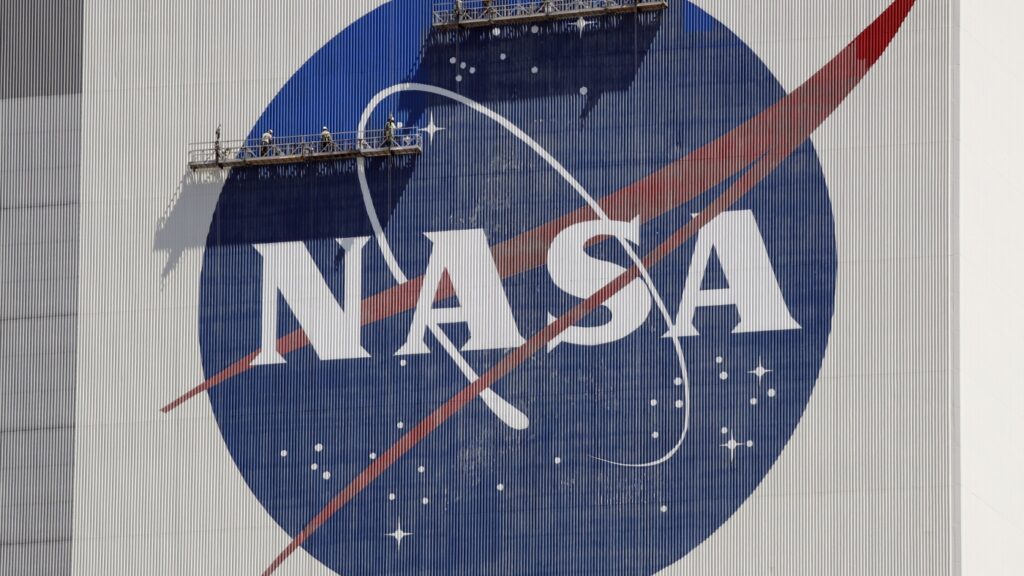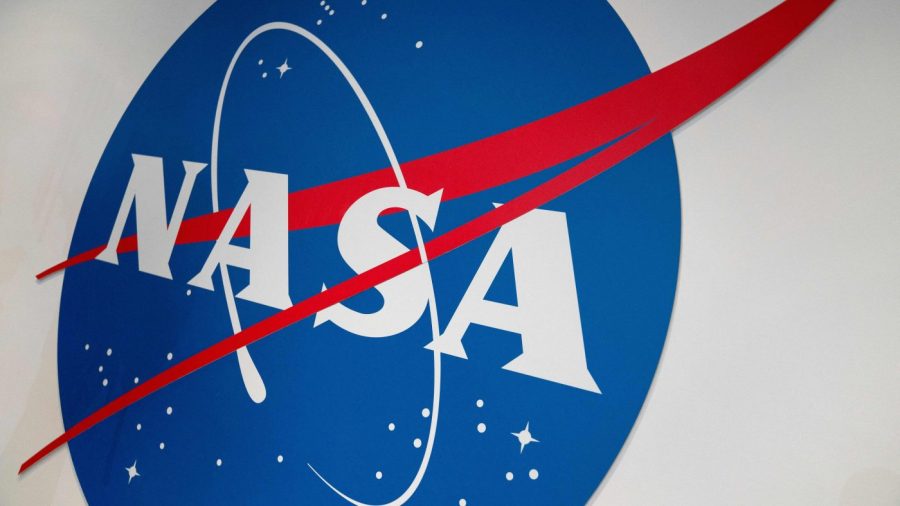
FILE - Workers on scaffolding repaint the NASA logo near the top of the Vehicle Assembly Building at the Kennedy Space Center in Cape Canaveral, Fla., May 20, 2020. (AP Photo/John Raoux, File)
Nearly 4,000 NASA employees have chosen to leave the agency as part of the deferred resignation program initiated by the Trump administration, according to a statement from NASA on Saturday. This significant reduction represents approximately 20% of the agency’s workforce, decreasing its total from 18,000 to 14,000 employees. NASA spokesperson Cheryl Warner confirmed that this figure includes an additional 500 workers who have departed due to normal attrition.
In the second round of the resignation program, which concluded at midnight on Friday, 3,000 employees submitted applications to leave, following the initial 870 employees who opted out in the first round. These resignations align with the administration’s broader strategy to streamline the federal workforce and implement cuts recommended by the Department of Government Efficiency (DOGE).
While NASA has not specified when these workforce reductions will fully take effect, Warner noted that the agency did not address inquiries regarding how the cuts might impact its operations. The White House has been approached for comment, but no response has been received.
Budget proposals further complicate NASA’s future. The fiscal year 2026 budget request unveiled in May suggests a cut of approximately 24%, reducing funding from nearly $25 billion to about $19 billion. However, discussions in both the House and Senate indicate a potential push to maintain current funding levels.
Despite these proposed cuts, NASA recently received a boost in funding through the One Big Beautiful Bill Act, signed into law earlier this month. This legislation allocates nearly $10 billion in additional support for NASA through 2032, endorsing critical projects such as Mars missions and plans for a return to the moon.
The proposed budget cuts and changes within NASA have garnered backlash from the scientific community and space advocacy groups. The Planetary Society, led by Bill Nye, has voiced strong opposition to the White House budget proposal, stating, “The Planetary Society believes that a great nation deserves a great space program, one that reflects our national ideals and serves the public interest.” They argue that the proposed cuts fail to uphold this promise and undermine NASA’s role in fostering unity domestically and collaboration internationally.
In a show of solidarity, over 300 current and former NASA employees signed a letter dubbed the “Voyager Declaration,” addressed to interim NASA administrator Sean Duffy. The letter criticizes the “rapid and wasteful changes” occurring within the agency, including cuts to key programs and research initiatives. The signatories urge Duffy to reconsider the proposed reductions, asserting that they do not serve NASA’s best interests.
As the agency faces these significant changes, the future of NASA remains uncertain. The consequences of these workforce reductions and budget cuts may profoundly impact its ability to carry out ambitious projects and maintain its leadership in space exploration.







